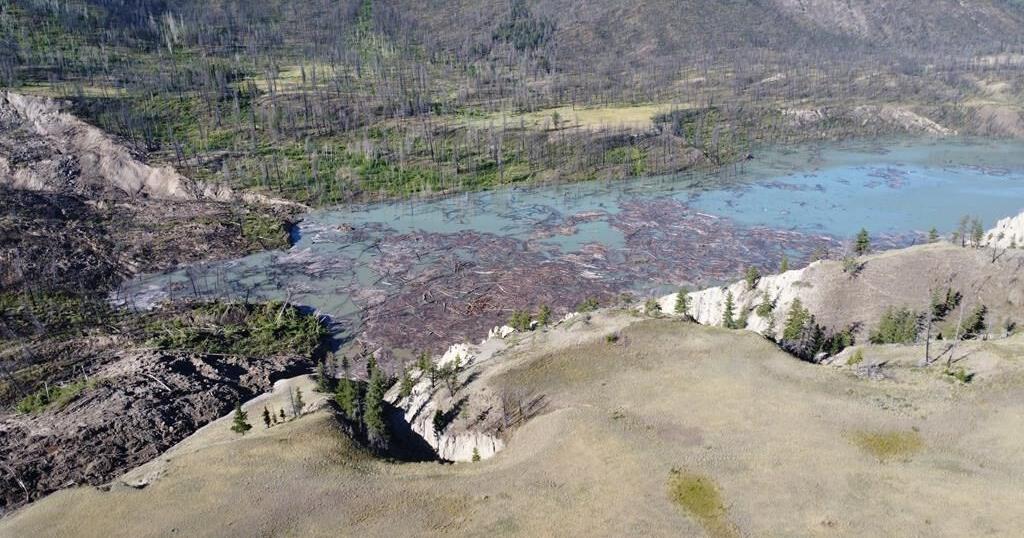WILLIAMS LAKE, B.C. – A massive landslide sending a torrent of water carrying large trees and debris downstream shows the power of Mother Nature, says a British Columbia Indigenous leader who has deep concerns about the rushing water’s impact on critical salmon runs.
Joe Alphonse, Tsilhqot’in National Government tribal chair, said Tuesday he’s “relieved” the dam created by last week’s landslide on the Chilcotin River broke and “we hope and pray that it’s not going to cause too much damage to property and people downstream from us.”
British Columbia government officials, who are scheduled to provide an update on the situation later Tuesday, say there is a risk of more landslides and bank erosion as a large lake of water flows past a landslide that blocked the Chilcotin River for days.
Alphonse said he’s aware of at least one heritage cabin being washed away from the banks of the raging Chilcotin River when the water started to flow over the top of the landslide area on Monday.
“You can’t manipulate Mother Nature,” he said. “We need to continue to monitor the river. There’s a lot of work that needs to happen here.”
Alphonse said the slide and damage from the rushing water could impact critical salmon runs heading for spawning areas upstream on the Chilcotin River and at Chilko Lake.
He said the valuable sockeye salmon run, currently making its way up the Fraser River, is due to arrive at the Chilcotin River this weekend, while some Chinook have passed by the slide area, but others are still in the river downstream from the slide.
“We need wild stock,” Alphonse said. “We have always eaten wild salmon, wild moose and wild deer. We are dependent on wild stock salmon. When you live at the poverty line you can’t afford to buy food from the health food store.”
He called on the fisheries department to introduce “automatic” sport and commercial fishing restrictions to protect Chilcotin River and Chilko Lake salmon.
“We don’t want to hear excuses for the Chilko Lake run,” Alphonse said. “We want leadership and solutions. We have one of the last pure rivers in North America. There’s no pollution in our rivers.”
The fisheries department says in a statement Tuesday that based on historical timing, it believes the majority of adult chinook salmon returning to the Chilcotin River this season migrated past the slide site prior to last week’s landslide.
It also said the majority of adult sockeye salmon are expected to arrive at the confluence of the Chilcotin and Fraser Rivers around the third week in August, and coho not until the early fall.
Connie Chapman with the province’s water management branch said the pulse of water after the dam breached Monday morning is making its way toward the Fraser River, and modelling shows it will reach the community of Hope sometime Tuesday.
Some communities will see river levels swell to those comparable to a spring runoff, flowing down through the Fraser Canyon to Hope, which will see river levels increase about one metre.
She said once the water enters the Fraser River, it will have more room to spread out and officials will be monitoring how and where debris from the water pulse ends up.
Water and Resource Minister Nathan Cullen said experts from the province, First Nations and Canada’s fisheries department “worked tirelessly” on the response to the landslide, which entered a “new phase” once it breached on Monday.
Cullen said they were preparing for “all possibilities,” and though the risks are decreasing after the dam breach, the possibility of more landslides due to unstable slopes remains “a real concern.”
Alphonse said the government did not make enough effort to work with the Tsilhqot’in, choosing instead to “strike fear into everyone. We don’t need them in our territory as far as I’m concerned. The next go around we’ll tell them to stay out.”
This report by The Canadian Press was first published August 6, 2024
